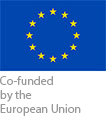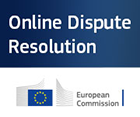Brexit and its consequences
Almost 5 years after the referendum, Brexit concretely came into effect on 1 January 2021. The rights of consumers who travel, reside, buy and live in the UK are changing. In this article, we answer the most frequently asked questions about the consequences of Brexit for consumers.
Updated: January 2021
The conditions for entry to the UK will remain the same until 30 September 2021: the presentation of a valid passport or identity card is required for entry into UK countries.
A valid passport will be required as of 1 October 2021. Only Belgians residing in the UK before 1 January 2021 will still be able to use their identity card until 2025 to enter the country.
Beware! For stays of more than 90 days over a period of 180 days in the UK, you will need to apply for a VISA.
In the event of cancellation, flight delays and denied boarding, the EU protects
- all passengers taking off from an EU country, Iceland, Norway (or Switzerland).
- all passengers landing in an EU country, Iceland, Norway (or Switzerland) if the airline company is European.
If you fly to the UK from the EU, even if the UK is no longer an EU member, you are protected by EU regulation 261/2004, regardless of your airline company’s nationality.
If you take off from the UK, the UK government has indicated that air passenger rights will be maintained regardless of the destination (EU or non-EU) or the nationality of the carrier (British, European or other).
The European rights stemming from Directive 1371/2007 have been transposed into national legislation. This means that you still benefit from your rail passenger rights for both national (within the UK) and cross-border journeys (e.g. Eurostar), regardless of whether the carrier is based in the UK or in the EU.
In the event of a train delay, you can always request a refund of 25 % of the ticket price for a delay between one to two hours, and 50 % of the ticket price for a delay of two hours or more.
Beware! Owing to the measures set up to combat COVID-19, there are restrictions on travel between the EU and all third countries, including the UK.
The European pet passport is still valid in the UK after Brexit. You will need to present it before entering the UK.
On the other hand, British citizens who wish to travel to the EU with their pets, must now ask their vet for a certificate of good health valid for four months, no earlier than 10 days before they leave.
British law has transposed the European directive providing for the legal guarantee of conformity, and goes even further than that. If you purchase a good in the UK that has a defect, you can ask the seller to repair or replace it.
This guarantee lasts six years for new goods in England, Wales and Northern Ireland and five years in Scotland.
To date, you do not have to prove that the goods were defective in the first six months after purchase.
- If the British seller regularly delivers to Belgium and thus directs its activities to Belgium, Belgian law is applicable in principle. The same applies after Brexit. In the event of purchase of a defective product, you can therefore continue to request the application of the legal guarantee of conformity for two years from delivery and thus obtain the repair or replacement of your goods from your seller. In the case of distance purchases, you also benefit from a 14-day withdrawal period which allows you to change your mind and cancel your order. However, asserting your rights in the event of a dispute may be more difficult. So check beforehand whether or not the seller seems reliable to you. Do the Webshop Check.
- If you are buying from a UK website that is not aimed at overseas customers, UK law is generally applicable. If you buy a faulty product, consumers will be able to claim repair or replacement from the seller for six years in England, Wales and Northern Ireland and five years in Scotland (for new goods). If you buy from a website in the UK, you also have a 14-day withdrawal period to change your mind and cancel your order.
Starting from 1 January 2021, all purchases from UK web shops are considered purchases from outside the EU. If you ask for your goods to be delivered to an EU address, then you will be importing those goods into the EU. That means your goods will be subject to customs clearance upon arrival in the EU, and subjected to the following taxes:
- VAT
- Import tariffs (customs duties)
The company that will be taking these goods through customs, usually the transporter, will be charging you an additional fee to cover the administrative costs of the clearance process, the so-called customs clearance fee.
The intrinsic value of your package, that is the total price of your order minus the shipping costs, will determine if and to what extent your purchase from the United Kingdom will be taxed.
| Intrinsic value of the package | Do I have to pay VAT? | Do I have to pay Import Tariffs? |
| Up to 22 euro (before 1/07/2021) |
No. | No. |
| Up to 22 euro (starting from 1/07/2021) |
Yes, on the total price of your order, excluding shipping costs. | No. |
| Between 22 and 150 euro | Yes, on the total price of your order, including shipping costs. |
No. |
| Between 22 and 150 euro More than 150 euro |
Yes, on the total price of your package, including shipping costs, import tariffs and customs clearance fees (see above). |
Yes.
|
Packages with a value exceeding 150 euros will be exempted from import tariffs if they are accompanied by a declaration of origin that proves that the economic origins of your goods are British or European. In practice this means you will need to contact the British trader to inquire about the origins of the products before placing your order. Don’t forget to explicitly ask the trader to include a declaration of origin in your package before the package is shipped.
Good to know: Did you order your package before 31 December 2020 but delivery took place after 1 January 2021 (date of Brexit)? If the shipping commenced before 1 January 2021 and was sent under the status “Union”, then your package should be exempted from VAT and Customs Tariffs.
This information page summarizes the applicable rules and clarifies them with the help of a few examples.
Since 3 December 2018, European professionals or those established in a third country who direct their activities towards the EU, can no longer block or limit access to their website for reasons related to the nationality, place of residence, postal address, IP address, delivery address, language or bank identification details of consumers. Nor can they automatically redirect consumers to the national version of their website without their consent.
If you have browsed the website of a British professional who directs their activities to Belgium, you cannot be redirected to the Belgian version of the website without your agreement. If the website was in English and was only intended for British customers, the geo-blocking regulation and the rules described above do not apply.
Good to know: Since Brexit, European professionals are no longer subject to the geo-blocking ban on British consumers. Consumers can therefore be blocked or limited in their purchases on European websites if the British market is not explicitly targeted.
No. Since 1 January 2021, you can no longer use the European platform to file a complaint against a British professional or contact a British ombudsman. However, the UK ECC shall remain at the service of European consumers through the network of European Consumer Centres. In addition, most of the English mediation and arbitration services shall remain competent to deal with European consumer complaints against British professionals.
No. Only applications submitted before 31/12/2020 will be processed.
Since 1 January 2021, the European Small Claims Procedure is no longer possible against a UK professional. It is therefore necessary to turn to a British small claims procedure.
Yes. Your free European Health Insurance Card (EHIC) remains valid in the United Kingdom after Brexit. With your EHIC, you will have access to urgent medical care during a temporary stay in another EU Member State. Your EHIC also guarantees a swift reimbursement of the costs.
If you were living in the UK before 1 January 2021, you can request a new British EHIC.
All EHICs of British people issued before the end of 2020 will remain valid in the EU until their expiry date. Afterwards, they will need to request a “UK Global Health Insurance Card” (GHIC).
European driving licences are no longer automatically recognised across the Channel. We recommend that you request an international driving licence to drive in the UK.
You must be able to show your insurance green card or other proof of insurance before you can drive your vehicle in the UK.
In the Single Euro Payments Area (SEPA), cross-border transfers must be as easy as national transfers. Countries outside the euro area are part of SEPA. This is indeed the case for the UK.
In order to facilitate trade with EU member countries, the UK has decided to remain in SEPA. You can therefore continue to transfer money easily to a UK account from Belgium.
Please note, however, that transferring money in pounds sterling involves the payment of an exchange fee (conversion of euros into pounds sterling), as was already the case before Brexit. Therefore, there may be a certain cost for transfers to a UK account. Please check with your bank.
Finance and banking services are not part of the EU-UK agreement. However, many British online banks and neobanks have taken the lead by opening entities in the EU in 2019 or 2020, in order to transfer their European customers there. Hence, you may have already received your new IBAN identifier where GB is replaced by the abbreviation from an EU country. You can therefore continue to use the services of your online bank or neobank in Belgium.
If your UK bank has not opened an entity in the EU, check with them for the terms and conditions for using your account in Belgium.
No. EU payment legislation remains in force in the UK after 1 January 2021. Therefore, UK merchants are not entitled to charge you any extra fees for credit card payments. However, please remember to take into account any currency exchange charges that still apply.
Since 1 January 2021, UK telecoms operators have been free to charge a fee for connecting a phone to an overseas network (roaming charges). While these charges were abolished in all EU countries in 2017, EU rules no longer apply to the UK, which has permanently left the EU. Therefore, each British and/or Belgian telecoms operator may or may not decide to charge European customers in the UK and Belgium additional fees for calls, SMS, MMS and mobile data. Please check with your operator for details.


